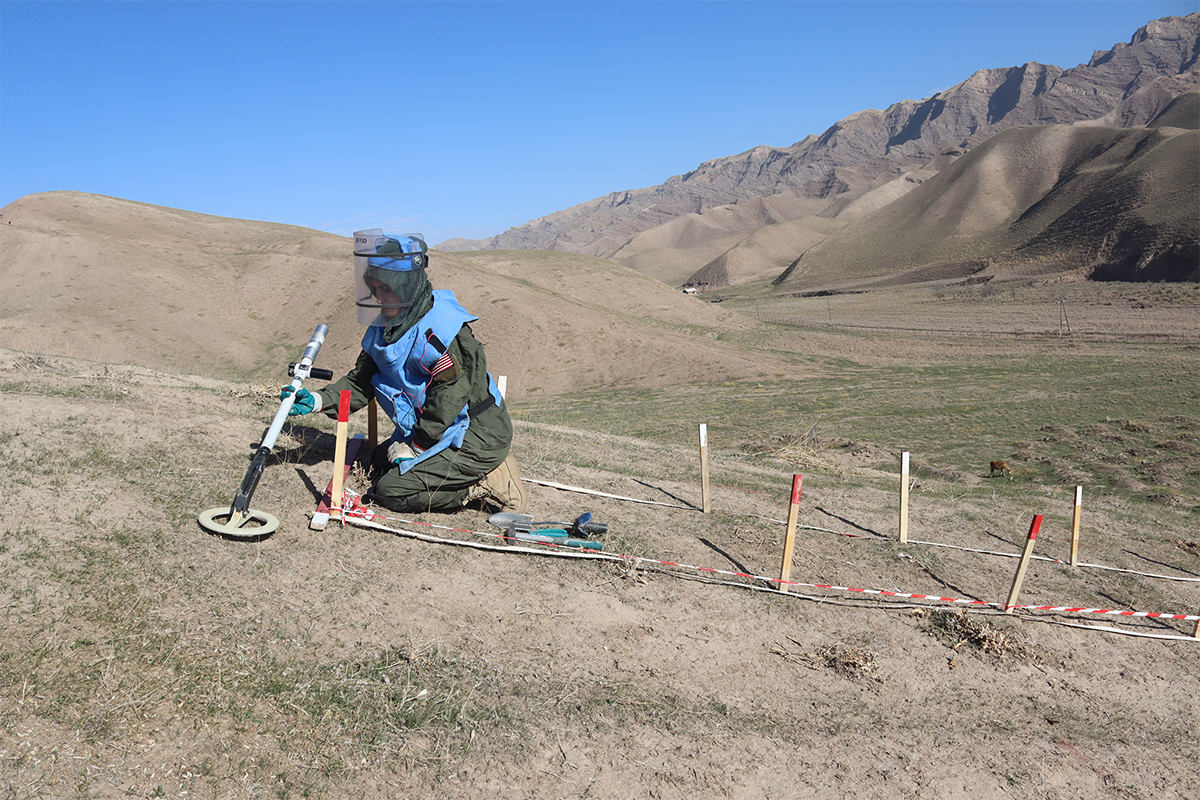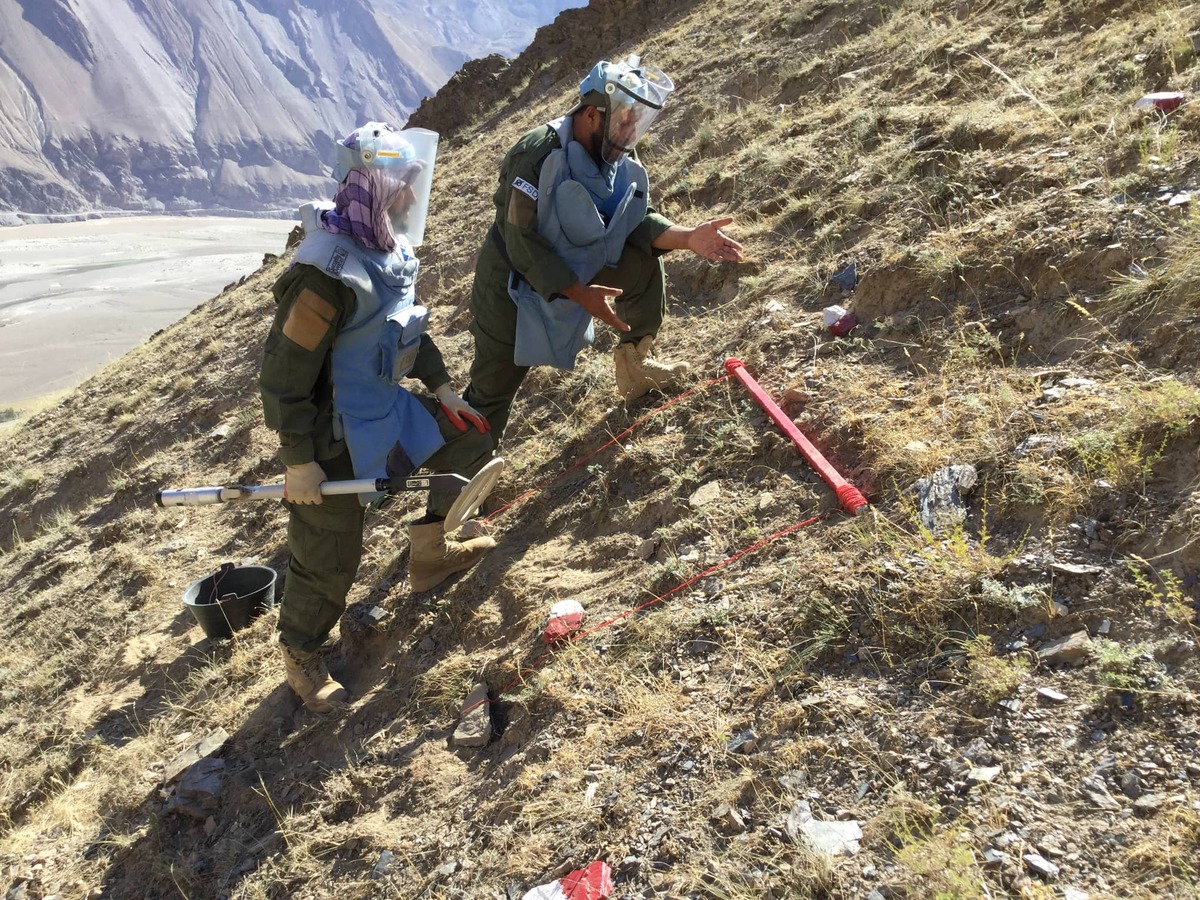Afghanistan
FSD has been working in Afghanistan for more than 20 years, focusing on clearing landmines and explosive remnants of war in the border regions with Tajikistan.
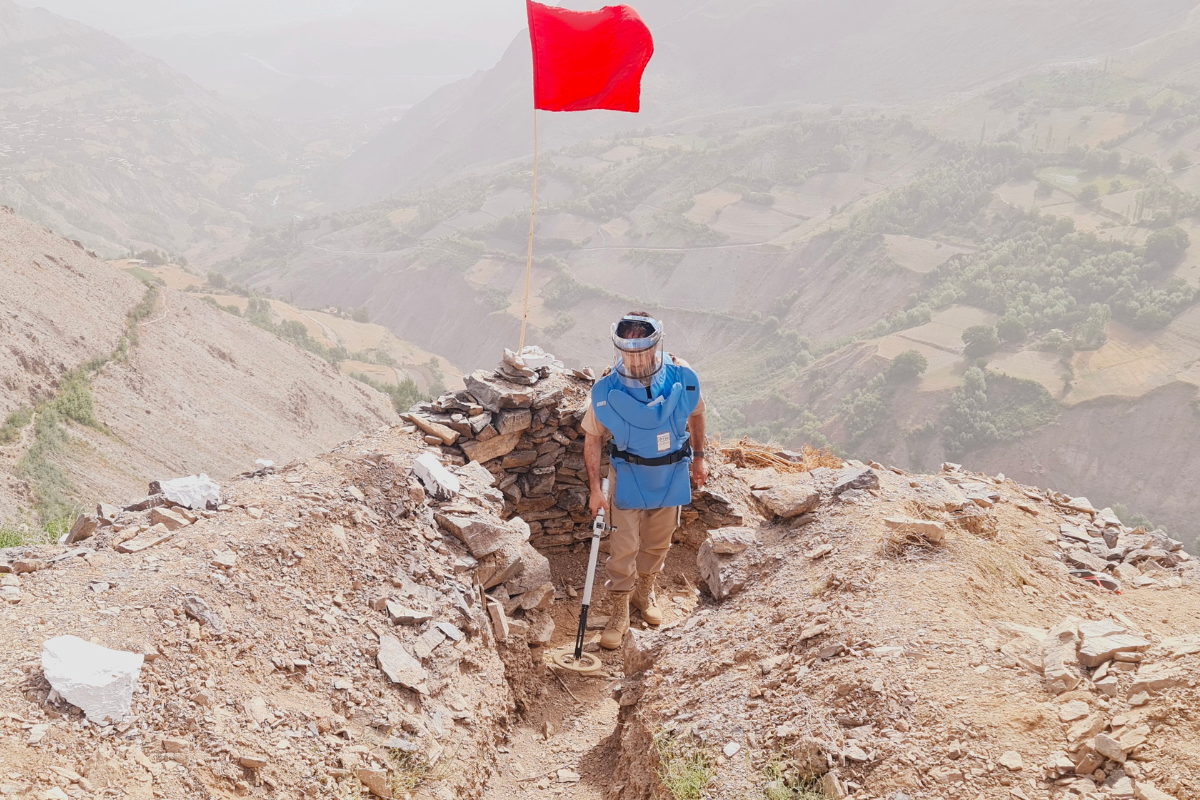
An FSD deminer carries out a quality control check after the excavation of the trench. (Afghanistan, 2024)
Afghanistan
Context
Afghanistan is one of the countries most contaminated by mines and explosive remnants of war, a legacy of nearly four decades of armed conflict. Since 1989, about 45,000 Afghan civilians have been recorded to have been killed or injured by landmines and explosive remnants of war, the majority of them being children.
FSD operates in Badakhshan province, located northeast of the country, where many of these mine accidents occur. The region is isolated from the rest of the country by a mountain range and has limited access to international aid. FSD also operates in Kunduz province, at the frontier with Tajikistan.
Often involved in accidents, “butterfly” mines are well-known small green plastic devices that were dropped by Soviet helicopters during the conflict in the 1980s. More than one million butterfly mines reportedly remain in the country, posing a significant threat, especially to children who may mistake them for toys.
The Taliban takeover in 2021 has further hampered humanitarian activities due to interruptions in funding, complications during border crossing closures, and the prohibition of the delivery of risk education to women and girls over the age of twelve.
Some children have no option but to cross mined areas to reach school.
Said Omar
School Director in the Darwaz region
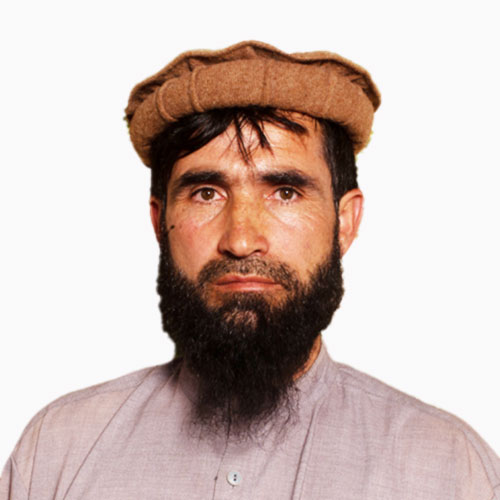
Timeline
FSD in Afghanistan
In 2001, FSD participated in the clearance of mines from Kandahar Province, in the southeast of the country. This was mandated by the World Food Programme and the United Nations Office for the Coordination of Humanitarian Affairs.
About ten years later, a second demining project was implemented in Badakhshan Province, in the northeast of the country, close to the border with Tajikistan. The project included demining and risk education activities, through which more than 100,000 Afghans learned how to stay safe during educational sessions in villages and schools.
Alongside its demining operations, FSD drew on its long-standing presence in the region to support over 500 mine accident survivors in Afghanistan between 2018 and 2024. To help them access income-generating activities suited to their disabilities, FSD provided vocational training in sewing and beekeeping, and facilitated access to prosthetic limbs.
Due to restrictions related to the Covid-19 pandemic and the change of government in Afghanistan in 2021, several changes had to be made. A new operational base was set up in Kunduz in 2022, making it possible to deploy additional demining teams in the region and the neighbouring province of Balkh.
In 2024, funding shortages posed significant challenges to FSD’s operations, leading to the suspension of risk education initiatives and mine victim support programmes. These financial constraints also limited the scope of mine clearance activities, affecting the pace and scale of operations.
Despite these challenges, FSD remains committed to supporting Afghan communities affected by landmines and unexploded ordnance.
FSD’s programme in Afghanistan is funded by the U.S. Department of State and private donors.
Stories
News from Afghanistan
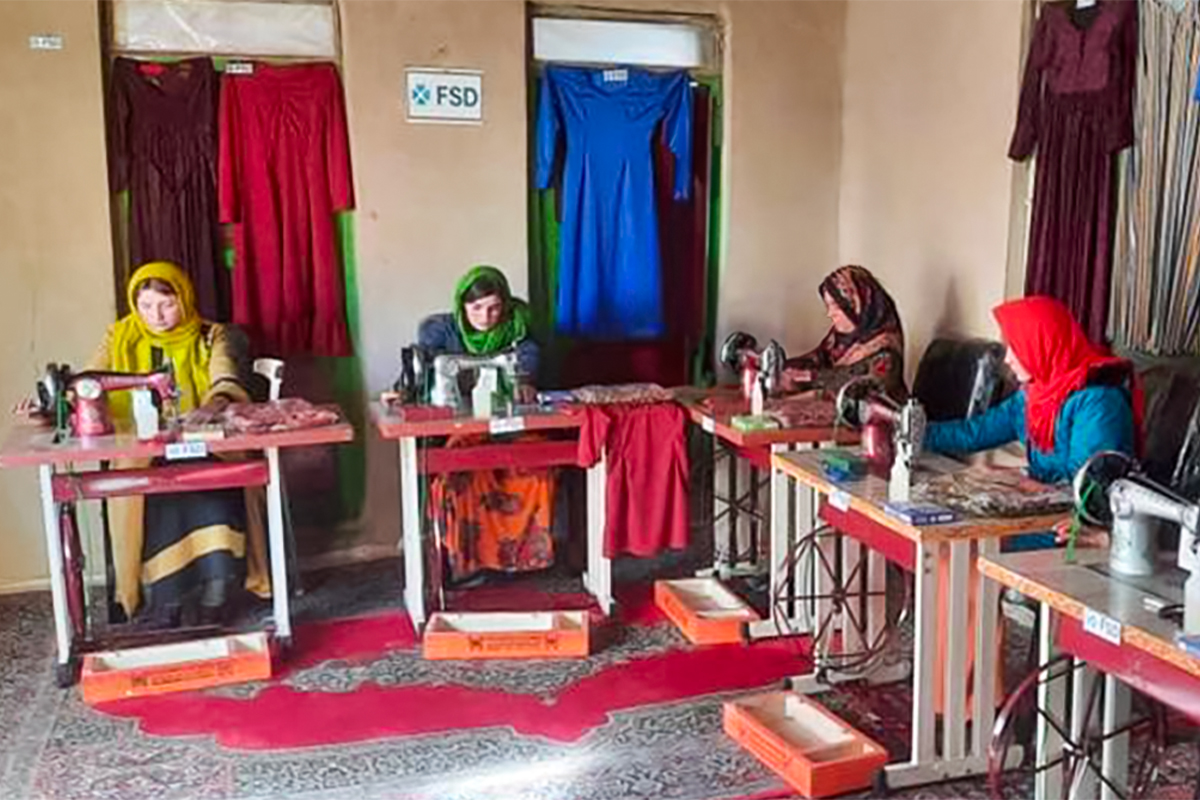
REBUILDING HOPE IN AFGHANISTAN
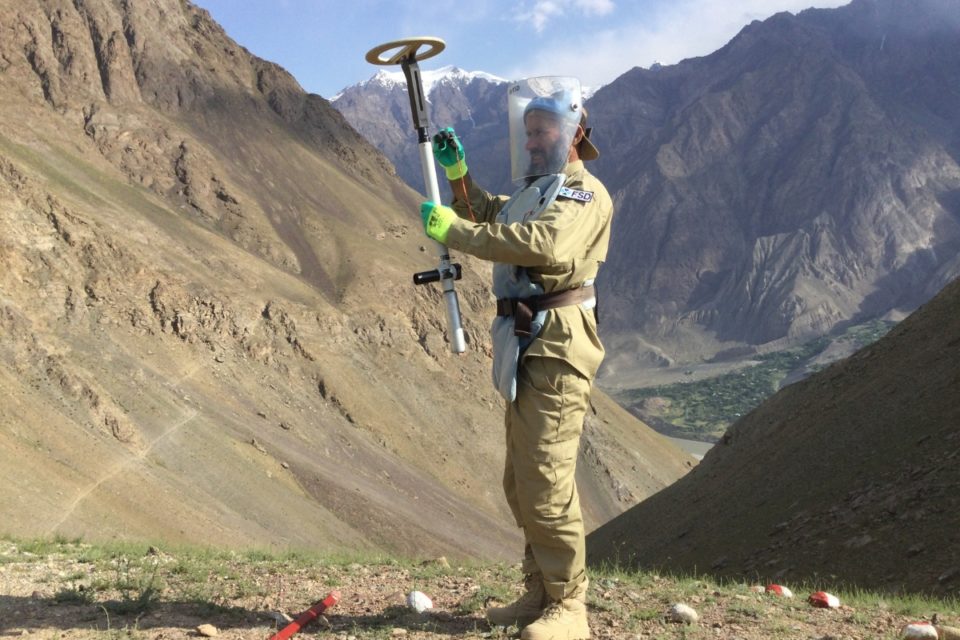
🧐 DEMINER CHECK-LIST
Regular equipment checks are a crucial daily step prior to demining that ensures the safety of our teams on the ground. Deminers check that their detectors are working properly by testing them on a small piece of metal.
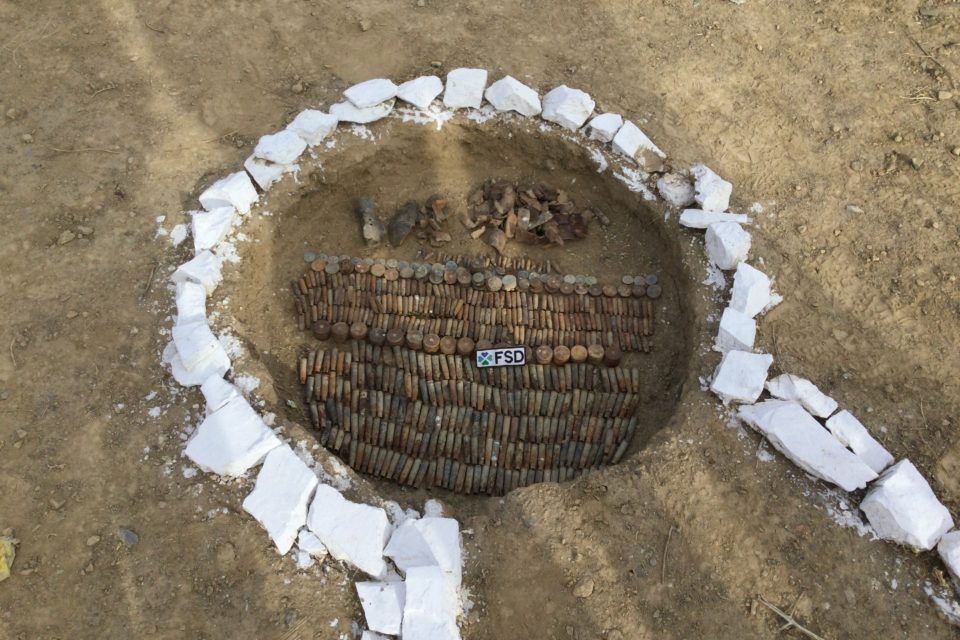
WHY DO DEMINERS WEAR KNEE PROTECTION?
At every signal from their detector, our deminers have to kneel down to thoroughly investigate the ground. Sometimes, what triggered the alarm is a harmless piece of metal, but until it’s confirmed safe, it’s a potential threat.
CENTIMETRE after CENTIMETRE
In 2024, our Afghan teams cleared 40 football fields’ worth of land contaminated with explosive hazards.
newsletter
- News from the field
- Demining videos
- Interviews with experts
- Events
- Job offers
